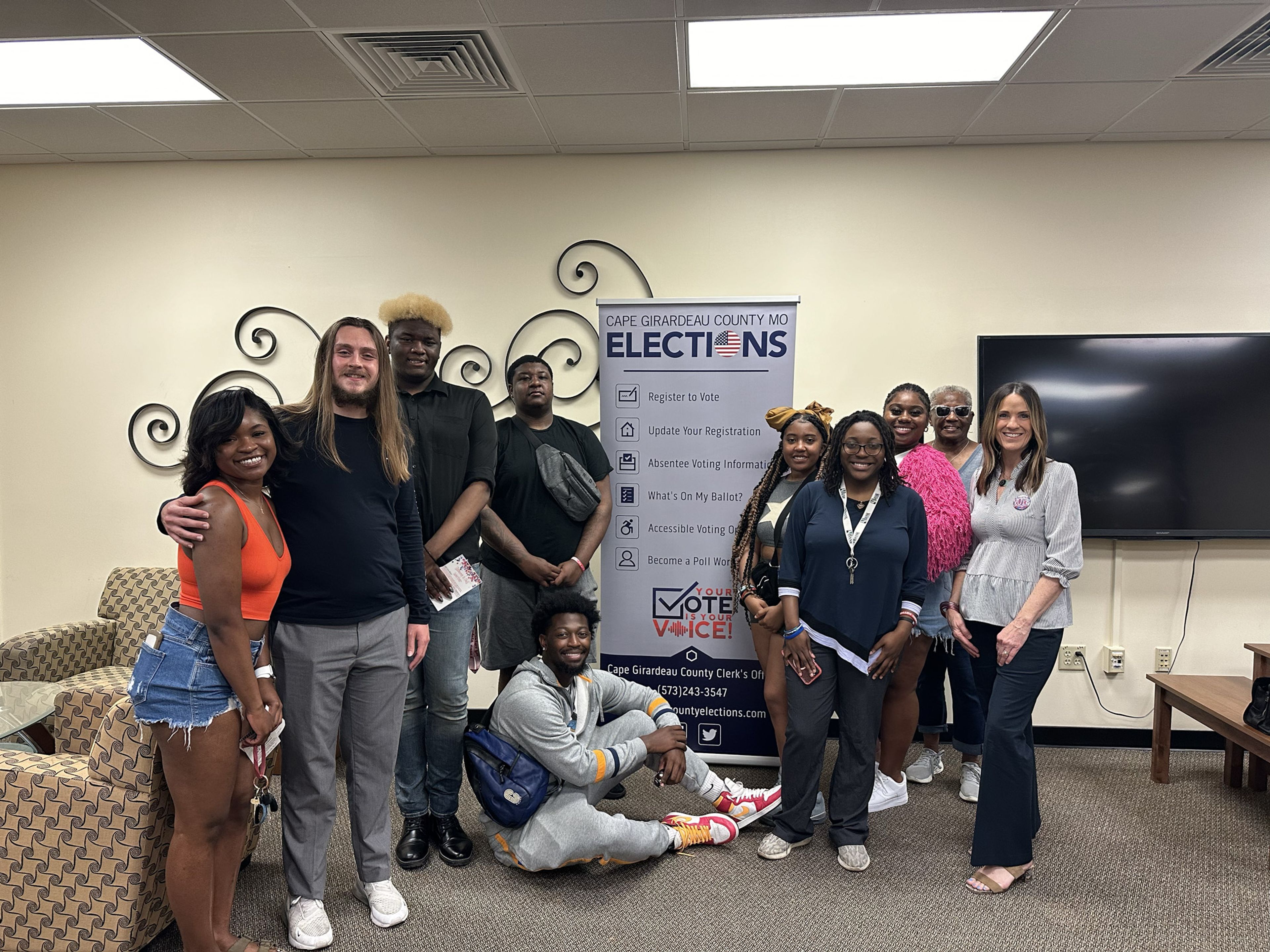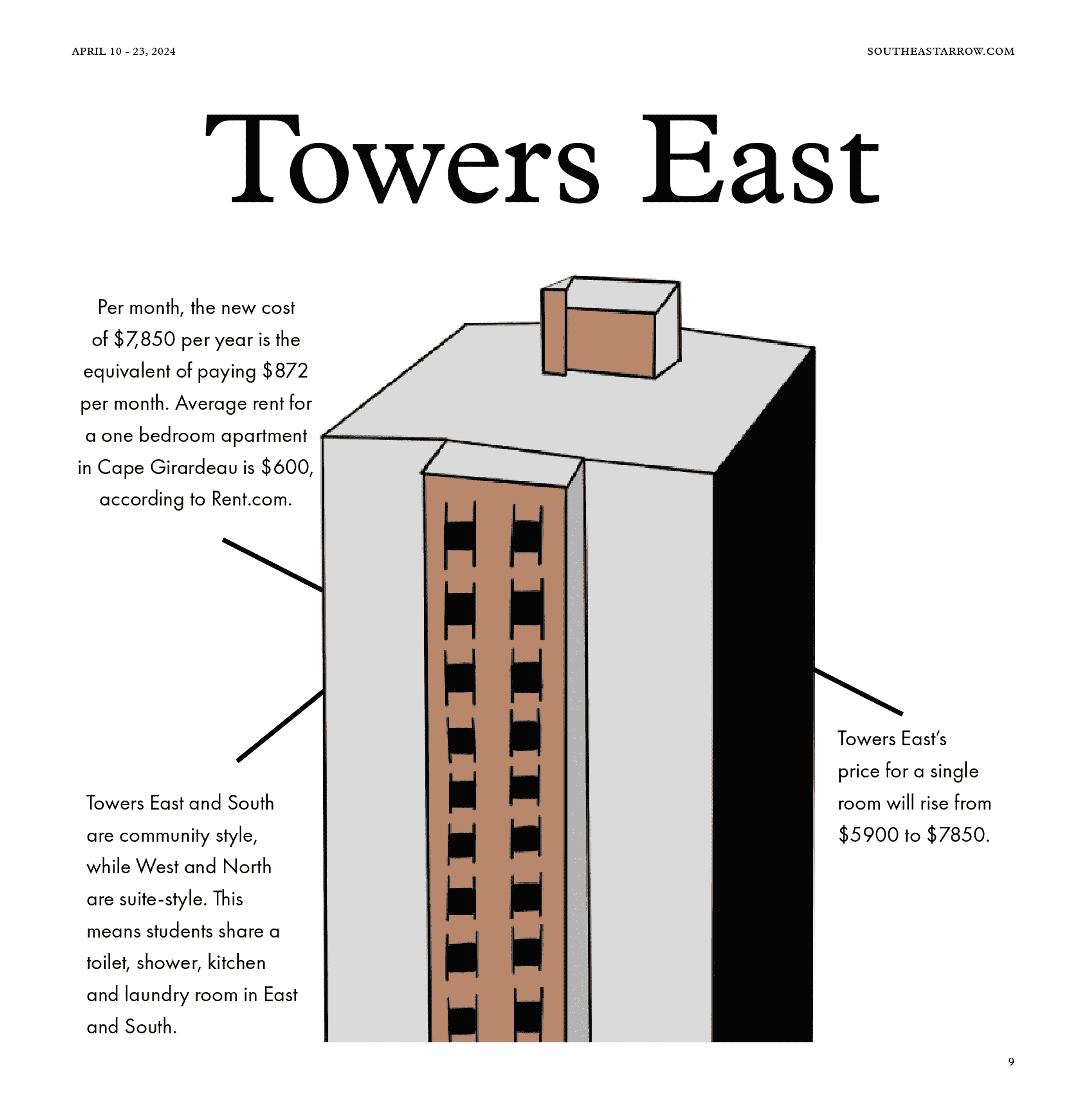During the early '90s Bosnia suffered from genocide as Serbians sought to "cleanse" the country of the other two predominant nationalities living there: Bosnians and Croatians. While thousands of people were being killed, Southeast student Armin Blagajcevic and most of his family made it out alive.
"We were in Bosnia for three months before escaping to Germany. During the daytime we stayed at my sister's house and during the nighttime we hid in the forest," said Armin's father Jasim Blagajcevic. "Then the UN came and took us to Zagreb, Croatia and from there the International Red Cross took us to Germany."
The town of Blagaj in Bosnia where the family lived was founded by Jasim's ancestors, the first people to settle in that part of the land.
"Our biggest concern was that we weren't going to be able to live in Bosnia again," Jasim's wife Esma said of moving to Germany.
The family had no choice but to go to whichever country would accept them. The Blagajcevics made it to Germany on buses transferring refugees to North Rhine into a city called Monchengladbah.
The family spent the first year of their lives in Germany in a small apartment given to them by the government. It consisted of a kitchen and a living room with no bedrooms, along with community bathrooms, and showers in the dark basement. Jasim worked as an electrician as Esma and Armin stayed home.
"I had a corner to myself for my toys," said Armin. "I had a friend across the hall but we couldn't hang out for some reason. Looking back though he might have been Serbian."
After all of Jasim's hard work the family was able to save up enough money to move out of the apartment building into a house in a different part of Monchengladbah. Around the time of the move Armin's sister, Armina, was born.
"That's when we were finally a functioning, normal family. We established a better life there," Armin said.
Though they were living in Germany they still held on to their Bosnian culture. Outside the home they spoke German but inside they spoke Bosnian, and despite attending a private school Armin and his family were still practicing Muslim.
Life in Germany was going well for the Blagajcevics. They vacationed around Europe and even made it back to Bosnia a few times.
"At the border of each country we had to show our passports and they checked every car. There were men standing guard with machine guns," said Armin. "It's not something a kid should see."
German government allowed only a certain time for how long people could live in the country without being citizens. They sent out letters to all the refugees ordering them to go through an interview to either move to America or get sent back to Bosnia.
"I loved Germany, I remember not wanting that letter to come," said Armin.
The letter came and called for Jasim and Esma to get an interview with American officials.
Jasim said, "We had an interview in Frankfurt and they asked us many questions like why we were going to America, if I was in the army, and if we had any relatives in America."
Esma said they were supposed to move back to Bosnia, but since their house was destroyed they moved to America to live with her sister in St. Louis.
The move was very hard for the family. Never had they been on an airplane and when they came to America it was very foreign to them.
"We had to start over with our lives. We had to live with a relative because we had nothing except some clothes and money," Jasim said.
The Blagajcevics had to adapt to yet another culture and language. Armin went straight into school and spent every day receiving help by a woman that spoke both English and German. He spent time watching TV with closed captions and taught himself how to read.
"Going to the library was my favorite thing to do," said Armin. "I would read nonfiction books on snakes, cars, animals, and stuff like that. Reading Harry Potter helped the most."
Armin also excelled in math and spelling.
He said, "In Germany we would have to listen and copy paragraphs of what the teacher read out loud to us and we were expected to spell everything right. But in America all we had to do is memorize one word at a time."
He quickly learned the language but his parents are still in the process of speaking fluently.
"It was much more difficult than in Germany. We were completely lost. It took us a couple years just to learn the basics and we're still currently learning something new every day," said Esma.
Armin is a junior at Southeast and is studying finance with a minor in German. His father owns his own company in St. Louis and the family has established a new life in a new country once again.




